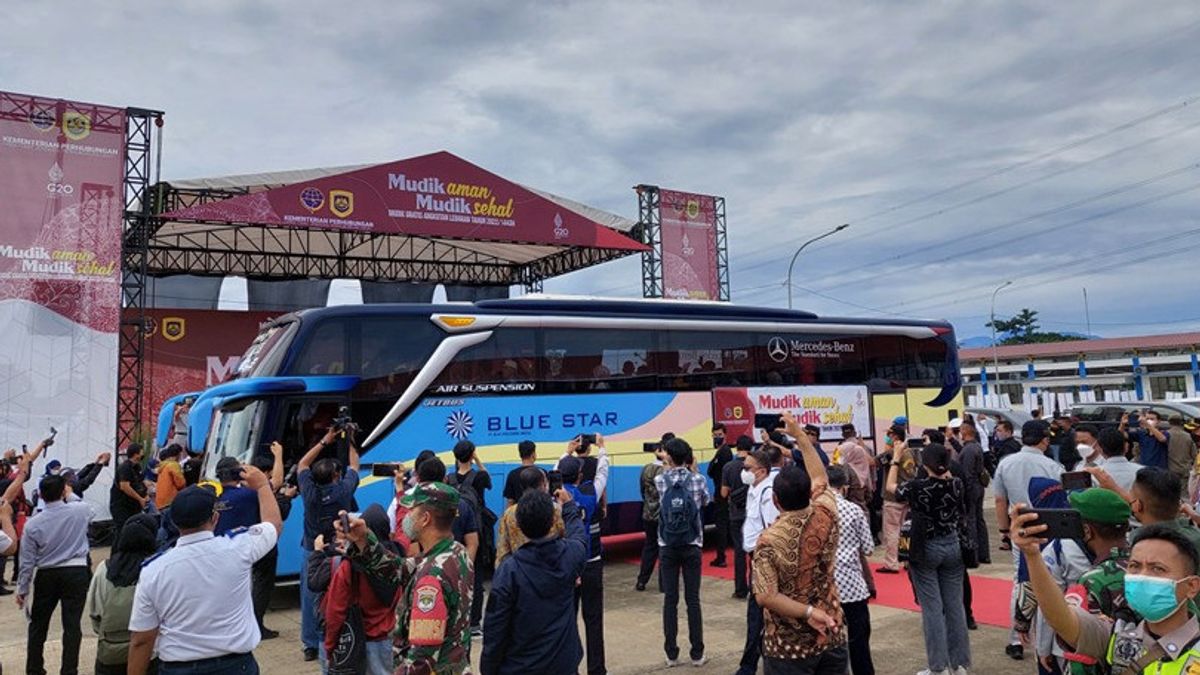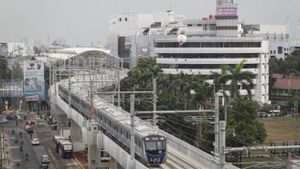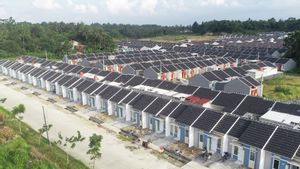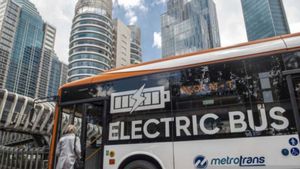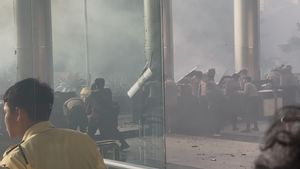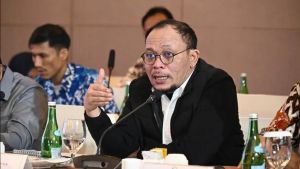JAKARTA The free homecoming program has always been the mainstay of the government at Eid every year. In addition to helping people reduce the cost of going home, this is also a way to reduce the number of travelers using motorbikes.
But the question is how is the effectiveness of the program? Referring to data from the Ministry of Transportation and the Indonesian Transportation Society, the number of travelers using motorbikes has continued to increase since 2015.
In fact, at this year's homecoming moment after President Jokowi revoked the Implementation of Community Activity Restrictions (PPKM) at the end of 2022, the number of travelers using motorbikes is estimated at 25.13 million people.
As seen from the survey results of the Transportation Policy Agency of the Ministry of Transportation in 2023 regarding five choices of transportation modes for private car Lebaran homecoming 27.32 million people (22.0 percent), motorcycle 25.13 million people (20.30 percent), bus 22.77 million people (18.39 percent), inter-city train 14.47 million people (11.99 percent) and car rental 9.53 million people (7.70 percent).
Whereas in the same period, the government also continues to intensify free homecoming programs. Not only the Ministry of Transportation, a number of state-owned companies, local governments, and several private companies also succeeded in the program.
Deputy Chairperson of the Central Indonesian Transportation Community (MTI) Regional Empowerment and Strengthening Division, Djoko Setijowarno, does not deny that the free homecoming program cannot be said to be percentage effective. However, at least there is an effort to compensate.
"If there is no free homecoming, the number will definitely increase. Moreover, economically, it is more economical, going home using a motorbike can suppress the expenditure of public transport rates, which of course always increase during homecoming moments," Djoko told VOI on April 14, 2023.
By using a motorbike, travelers are also more flexible in terms of time and do not need to queue for tickets. Homecomers can also use their motorbikes around the hometown. There is no need to borrow from relatives.
However, the risk is also much greater, prone to accidents. Motorcycles are not designed for long-distance travel.
"So, try not to choose a motorbike, especially if you are with your wife and children. While there is a free homecoming program, take advantage of it immediately," said Djoko.
In his notes, Djoko said the free homecoming program was first carried out by PT Sido Muncul in 1991 to Wonogiri and its surroundings. The goal is to serve herbal medicine sellers who have helped market Sido Muncul herbal products.
Then, the Directorate General of Land Transportation of the Ministry of Transportation in 2007 took the initiative to take similar steps to the destinations of cities in Java and parts of Sumatra. The goal is not only to provide services, but also to reduce the number of travelers on motorbikes in order to reduce the number of traffic accidents.
Because, at that time, motorcycles had become people's favorite modes of transportation.
"After the credit policy emerged, without or with a down payment around 2005, motorcycle products were selling well in the market. The company is also increasingly innovating by presenting products with engine capacities above 100 cc. As a result, not only for work, many people also use motorbikes for homecoming transportation," said Djoko.
Six years later the Directorate General of Railways and the Directorate General of Sea Transportation also presented a similar program at the 2013 homecoming moment.
The Directorate General of Railways initially only provided 2 service routes. Then, in the 2016-2019 period, it rose to 3 service routes.
Local governments also took part. The East Java Provincial Government is noted to have launched a free homecoming program since 2010 and continues to be carried out until now. Then followed by the Central Java Provincial Government in 2015, and the DKI Jakarta Provincial Government in 2022.
"This year, the West Kalimantan Provincial Government, the South Kalimantan Provincial Government, and the Tangerang Regency Government have also participated," said Djoko.
The Directorate General of Railways this year has prepared 3 free homecoming service lines with a capacity of 46,720 passengers and 10,440 motorcycles with a total duration of 20 days for homecoming and return.
The daily transport capacity for the North Cross of Cilegon Jakarta Gudang Station, Tawang Station, Semarang carries 174 motorcycles and 848 passengers. Central Jakarta Cdang Station, Solo carrying 848 passengers and 174 motorcycles. South from Kiara Condong Stasoon, Bandung to Purwosari Station, Solo carrying 640 passengers and 174 motorcycles.
Meanwhile, the Directorate General of Sea Transportation opened a free homecoming cruise route. Tanjung Priok Port Route Tanjung Emas Port uses KM Dobonsolo with a capacity of 5,000 passengers and 2,500 motorcycles.
Likewise, the Directorate General of Land Transportation. Provides 585 buses to transport 24,072 passengers and 30 trucks to carry 900 motorbikes. With the aim of 28 cities in Java Island and 2 cities on the island of Sumatra.
Departures were carried out from 5 terminals in Jabodetabek, such as Kampung Rambutan Terminal and Pulo Gebang Terminal in Jakarta, Baranangsiang Terminal in Bogor, Jatijajar Terminal in Depok, and Poris Plawad Terminal in Tangerang.
"A total of 74 SOEs coordinated by PT Jasa Raharja also held free homecoming this year," said Djoko.
According to him, the free homecoming program during Eid al-Fitr celebrations or the Eid season as well as Christmas and New Year celebrations (Nataru) needs to be a national program. The implementation is not only on the island of Java and parts of the island of Sumatra, but also in areas including archipelago.
"In order not to get the wrong target, the basis for the selection is cards issued by the Ministry of Social Affairs, such as pre-health cards, and PKH (Family Hope Program). The source of the funds can be from the state budget, APBD, or the Social and Environmental Responsibility (TJSL) of SOEs. It could also be from CSR private companies," he added.
The English, Chinese, Japanese, Arabic, and French versions are automatically generated by the AI. So there may still be inaccuracies in translating, please always see Indonesian as our main language. (system supported by DigitalSiber.id)
